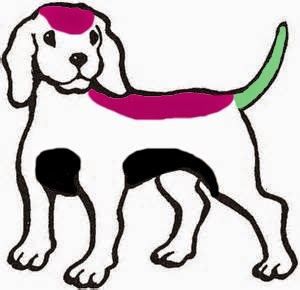 |
| No Competition |
 With quite impeccable timing I am at a Homer conference in Slovenia on the day England is playing
Slovenia at Wembley in the Euro 2016 qualifier. My own paper clashes with the
kickoff. I have begged the conference convenor to shift things round so we can
watch the match, but he is a serious intellectual who disapproves of ‘organised
sport’ and says no. Slovenia being a tiny country (population: 2 Million), the
conference is a sufficiently significant happening to feature on local TV. But I
don’t think many Slovenian viewers will be
choosing Homer today.
With quite impeccable timing I am at a Homer conference in Slovenia on the day England is playing
Slovenia at Wembley in the Euro 2016 qualifier. My own paper clashes with the
kickoff. I have begged the conference convenor to shift things round so we can
watch the match, but he is a serious intellectual who disapproves of ‘organised
sport’ and says no. Slovenia being a tiny country (population: 2 Million), the
conference is a sufficiently significant happening to feature on local TV. But I
don’t think many Slovenian viewers will be
choosing Homer today.
 |
| 'Did you remember to buy any dog food?' |

Ironically
the conference is all about European cooperation: it is a celebration of the
translations of the Odyssey into every official language of the European
Union. The paper I shall be delivering as Wayne Rooney goes into action is
about a medieval Irish version of the Odyssey
called the Merugud (‘Wandering’)
of Ulysses McLaertes. Seriously. It is morally an improvement on Homer’s poem, since there are no suitors involved, not
much sex and little bloodshed.
Being an Irish version, Ulysses spends some time
in a pub; since the Irish are obsessed with their hounds, the role of his dog
is upgraded.There
are no daft recognitions through scars or bedroom furniture: Penelope simply
brings in the dog to see whether she (and it is a she) recognises her long-lost
master. Delightfully, when the dog ‘heard
the sound of Ulysses’ voice, she gave a pull at the chain, so that she sent the
four men on their back through the house behind her, and she sprang to the
breast of Ulysses and licked his face and his countenance.’ Bless.
 |
| The Irish Odysseus's dog version 1 |
 |
| The Irish Odysseus's dog version 2 |
One reason why this Irish text matters (or so I
am arguing) is beecause it is the one that gave James Joyce the idea for his 1922 Ulysses, the foundational novel of both the
Irish Republic and of Modernist fiction. But it
also matters because the dog, who (unlike Homer's) gets
to stay alive, is described in a detail missing from the Greek: '"Two shining
white sides has she, and a light purple back and a jet-black belly, and a
greenish tail," said Ulysses'. To illustrate my talk I am providing two provisional reconstructions copyright and courtesy of S. and G. Poynder respectively.

 With quite impeccable timing I am at a Homer conference in Slovenia on the day England is playing
Slovenia at Wembley in the Euro 2016 qualifier. My own paper clashes with the
kickoff. I have begged the conference convenor to shift things round so we can
watch the match, but he is a serious intellectual who disapproves of ‘organised
sport’ and says no. Slovenia being a tiny country (population: 2 Million), the
conference is a sufficiently significant happening to feature on local TV. But I
don’t think many Slovenian viewers will be
choosing Homer today.
With quite impeccable timing I am at a Homer conference in Slovenia on the day England is playing
Slovenia at Wembley in the Euro 2016 qualifier. My own paper clashes with the
kickoff. I have begged the conference convenor to shift things round so we can
watch the match, but he is a serious intellectual who disapproves of ‘organised
sport’ and says no. Slovenia being a tiny country (population: 2 Million), the
conference is a sufficiently significant happening to feature on local TV. But I
don’t think many Slovenian viewers will be
choosing Homer today.



No comments:
Post a Comment